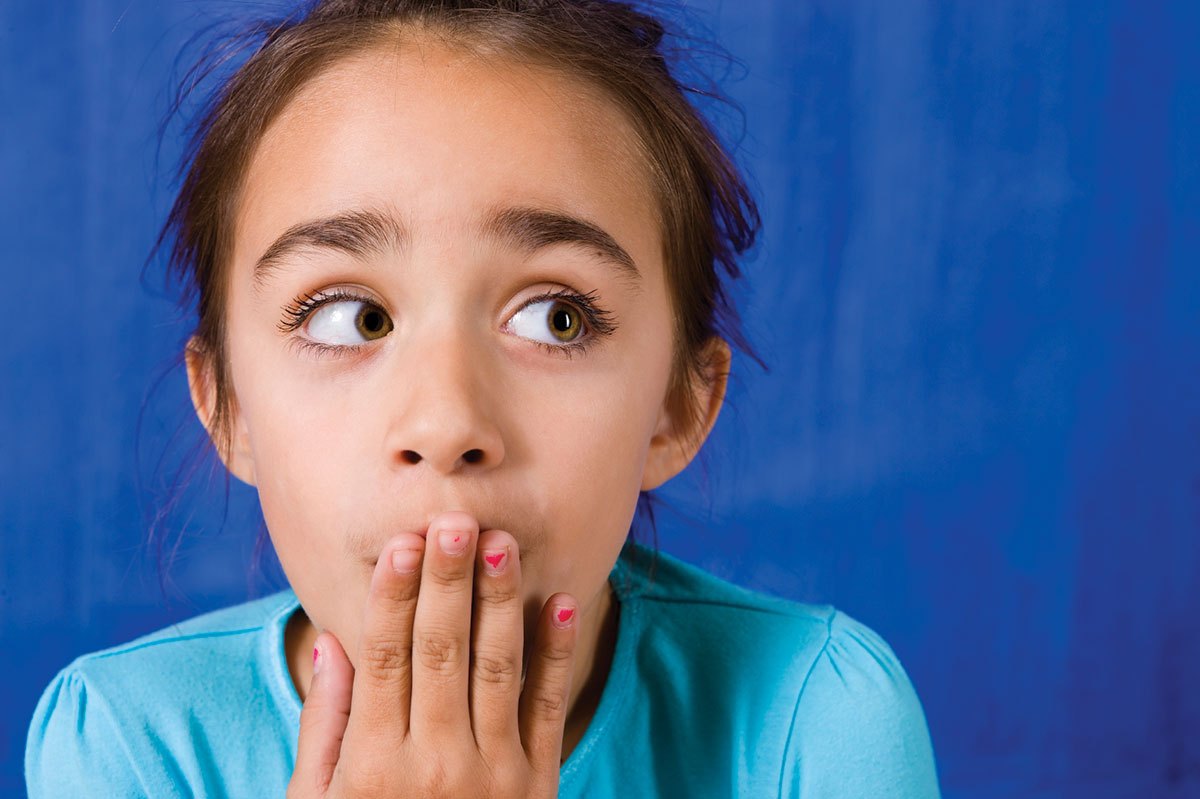he first time that your toddler uttered a swear word, it undoubtedly caught everyone by surprise and might have even made people laugh. Why do little kids say bad words? Because they often get a BIG reaction (be it positive or negative) from the big people in their lives. They may have heard an older sibling say a swear word, or may have heard the word on TV, via video games or even out in public from a complete stranger. But, admit it, many times they learned it from YOU, their parent. Often this was inadvertent by you, such as being cut off in traffic, or stubbing your toe on the corner of the couch, but the next thing you know, little Johnny is using this newfound exclamation every chance he gets.

What we do as adults in response to little kids repeating swear words or using “potty talk”, can go a long way in curbing this behavior. After all, who wants their two year old calling someone at the grocery store a “butthead” or a “fart face,” or saying something worse when they get frustrated?
The best way to deal with this behavior is to ignore it. Any type of reaction, even saying “we don’t say words like that! (even though YOU just did) is bound to increase the inappropriate behavior. Laughing and gasping will also get the same results. So, the best thing to do is keep a straight face and just pretend you never heard it and only respond once your toddler says something appropriate again. Many little ones will stop saying a word, once it gets NO reinforcement from the important adults in their life.
Another way to help is to teach by setting rules and limits for your toddler. For example you can (at a time not directly after the child has used an appropriate word), reinforce “nice” words that we use with people to get their attention. Focus on being calm and matter of fact and let your child know “this is a word we do NOT use at our house or with our friends/family”. There is no need to go into the details of what the words mean or why, because this will only go beyond a toddler’s level of understanding. Lavish attention on your child when they use “I’m mad” to express frustration and read books and look at pictures of faces that express sadness, anger and frustration and give your child appropriate words to express these feelings.
Whatever you do, do not give into a child’s demands if he/she is using a swear word. For example, do not say “we do NOT use this word when we want a cookie” and then give them the cookie anyway. By doing so, you just once again reinforced the use of the swear word! And next time they are bound to be more adamant when they use it.
Decide what is appropriate language for your family and home, some families may be ok with “potty mouth” substitutions for swear words, while other families are not. And remember, a toddler cannot filter that it is ok to call his sister a “doody head”, but not the next door neighbor.
Watch your own mouth. If you are repeatedly using a swear word around your child, you’re going to have a tough time convincing them that it is ok for you to use it and not them. Be aware of the language used on both daytime and nighttime TV programming, which is often inappropriate for toddlers. Don’t allow your child to watch TV, videos or computer games unsupervised.
day2dayparenting.com shares important info with us:
Teach manners and respect. Work on reinforcing “please”, “thank you”, asking “May I have a cookie?” in place of “Gimme a cookie”. Teach your toddler that calling people names hurts their feelings and makes them sad. Role play using stuffed toys, dolls or action figures to help your child find more appropriate ways of expressing anger, frustration or to request something they want strongly.
Most toddlers are eager to please adults and when they see they aren’t getting attention or immediate gratification or results from using bad language, they should begin to shift towards using the more appropriate language that you model for them.
¡Stop bad words in your house! And tell me the results.
Fuente: day2dayparenting.com
